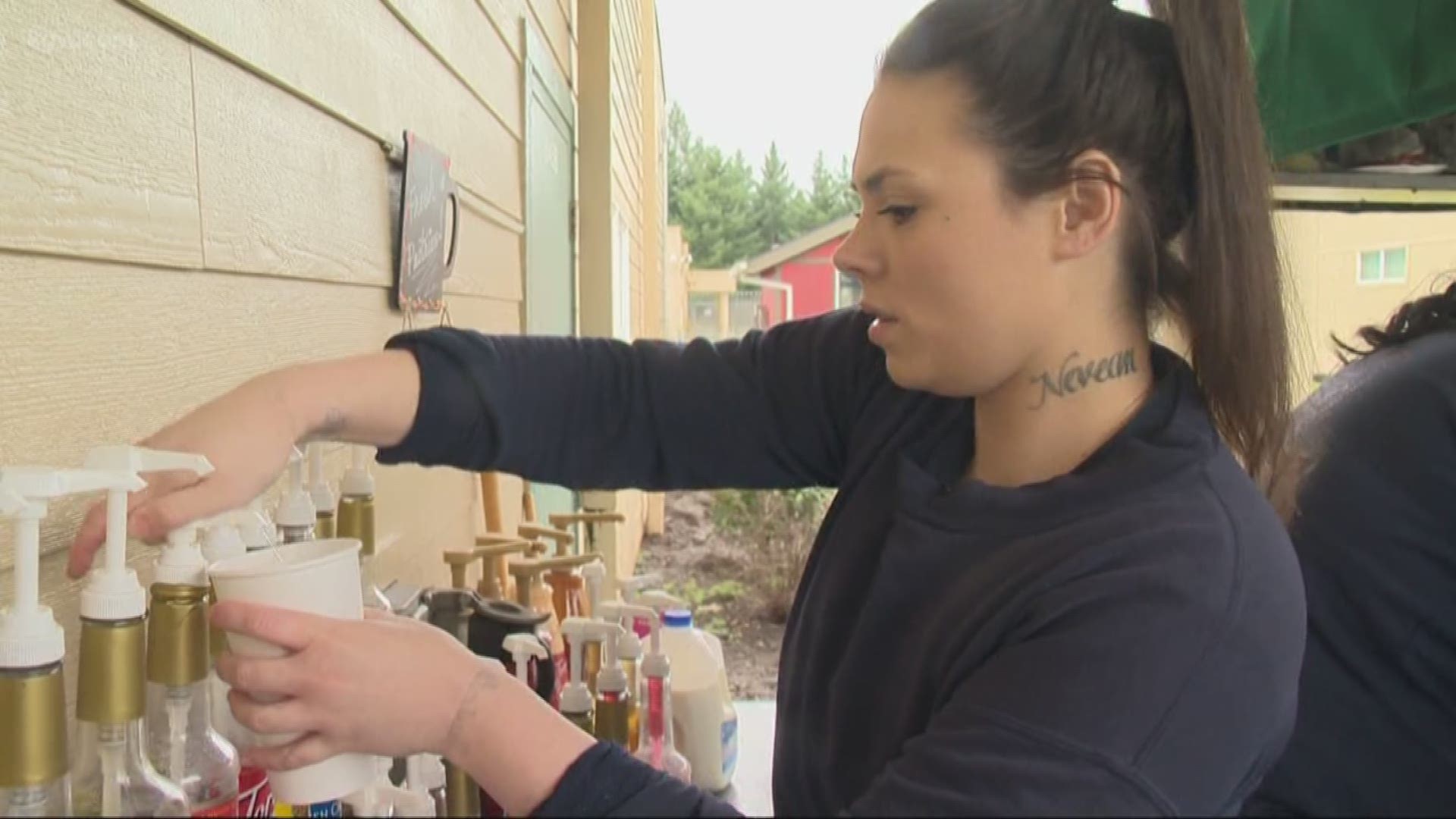WILSONVILLE, Ore. — There's a coffee stand, it feels like, on every corner.
In the United States there are over 15,000 Starbucks locations. On a smaller scale there are 290 Dutch Bros locations. If you want your favorite latte, you won't have to walk far to find it.
It's that level of accessibility that has inmates inside Coffee Creek Correctional Facility hopeful for a job opportunity when they get out.
Inside the walls of the Wilsonville all-female prison, 10 women have been trained to work inside a small coffee cart that serves up hot and cold drinks. Drinks can be purchased using special coffee tickets only available inside the jail and only redeemable at the coffee stand.
It's called Upshot.
The small coffee cart was donated by Portland Community College about five years ago and all the money spent at the cart goes back into buying what's needed to keep it afloat.
"It's a job opportunity. They help you get job experience and stuff like that. It helps you be hopeful for your future because you come here. I came here at 20 and I had no job experience," said Michaella Owens. "I never had a real job and not a lot of people want to give you a job without job experience or your criminal history or a lot of people here don't want to give you chances."
Owens was sentenced to six years at Coffee Creek. It's a sentence she says felt like forever.
"At 20 years old, getting six years in prison, you literally feel like your life is over. Like you have nothing to look forward too. You're never getting out," she recalled.
When Owens was transferred from medium to minimum security, she was trained to make coffee.
"Everything's a learning experience. It's another thing it teaches you, how not to be prideful," Owens said.
She said it's also taught her patience, teamwork, problem-solving and how to have a healthy relationship in the work area.
Tonya Mertes has one year left of her six-year sentence. She previously spent a year in a Washington prison, but found it hard to get a job when she was paroled.
"I have thefts on my record and just that felony on my record, period. I have a long history of addiction problems and whenever I'm in my addiction, I do things I don't do when I'm clean and sober," Mertes said.
The one thing she likes, besides coffee, is that this job lets her showcase her skills.
"I get to be creative in making my drinks. That's something I've learned over a period of time. I just love making people happy with what I created for them," Mertes said.
That record can make it hard to find a job, or difficult to find someone to take a chance on them. The coffee cart is part of the Life-Skills program run by coordinator Brittany Roach.
"If we want to rehabilitate people, we need to give them skills and we need to treat them like people because when we instill confidence in them, they can start to find it in themselves," Roach said.
Roach says staff are not allowed to keep tabs on inmates after they are paroled, so she doesn't know if any women who have previously worked in the coffee stand have either opened their own or been given a job.
"We give them as many tools as we possibly can while here, and hope they are successful and never come back," Roach said.
Owens grew up in Grants Pass, home of Dutch Bros. She hopes she can parlay these skills into a career with the Oregon coffee company.
"My ultimate goal is to work at Dutch Bros for awhile and finish school and then open up my own business. Somewhere where you can get your hair and nails done and have coffee," she said.
It's a job that teaches inmates not to look back, but to look forward towards their future.
The facility is in the process of building a permanent structure to house the coffee business. It'll be more secure and indoors, giving the baristas a more life-like work experience.

